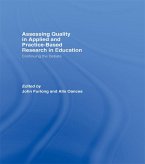Now going into its seventh edition, Neil Thompson's Anti-Discriminatory Practice has been providing a trusted introduction to the challenges of promoting social justice and equality for a quarter of a century. Addressing the common concepts and issues across the various forms of discrimination, this book explores the reasons why the development of anti-discriminatory practice is so vital, and examines the steps that need to be taken towards constructing a social work practice based on principles of anti-discrimination and the promotion of equality.
Promoting social justice, diversity and equality in social work practice is as vital today as it was when Anti-Discriminatory Practice was first published, and there is still much to learn. Written with Thompson's inimitable clarity, this new, fully updated edition of a classic text is key reading for undergraduate and postgraduate students of social work. Practitioners will also benefit hugely from Neil Thompson's experience and expertise.
New to this Edition:
- A new edition of a popular and trusted textbook fully updated to reflect the many changes since the last edition
- Voice of Experience and Practice Focus examples, encourage readers to think contextually and integrate theory and practice
- An explicit theory base, with key points from each chapter drawn out to highlight specific main themes
- A range of questions for reflection and guidance on further learning
Promoting social justice, diversity and equality in social work practice is as vital today as it was when Anti-Discriminatory Practice was first published, and there is still much to learn. Written with Thompson's inimitable clarity, this new, fully updated edition of a classic text is key reading for undergraduate and postgraduate students of social work. Practitioners will also benefit hugely from Neil Thompson's experience and expertise.
New to this Edition:
- A new edition of a popular and trusted textbook fully updated to reflect the many changes since the last edition
- Voice of Experience and Practice Focus examples, encourage readers to think contextually and integrate theory and practice
- An explicit theory base, with key points from each chapter drawn out to highlight specific main themes
- A range of questions for reflection and guidance on further learning









